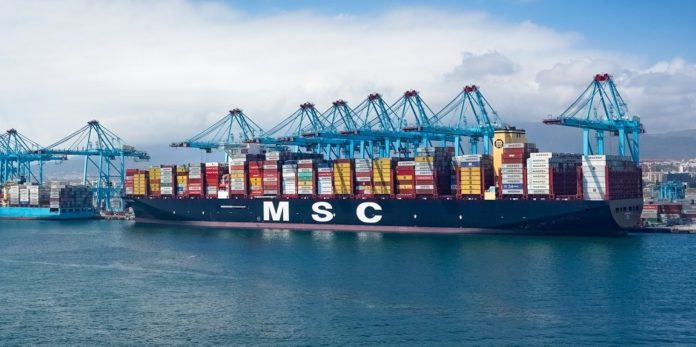Cargo insurance specialists expect an increase in commercial claims as a result of the coronavirus outbreak in China that is delaying cargo in ports or onboard ships with perishable cargo posing obvious time delay difficulties.
According to the TT Club it is “anticipated that there will be mishaps” with cargo as delays and a lack of staff cause difficulties in tracking cargo, particularly perishable goods. In expectation of such an increase in claims the insurer has issued a guidance note for freight forwarders and logistics managers with the assistance of law firm Holman Fenwick and Willan (HFW).
“We don’t know what claims will arrive,” TT Club’s risk management director Peregrine Storrs-Fox told Container News, he went on to say, “We recognised that there are a number of commercial problems that could arise from the coronavirus outbreak and we wanted to get logistics managers and freight forwarders in the best possible place to face any potential problems.”
Storrs-Fox cited the example of an MSC vessel which had part loaded cargo in China but was now at anchorage because its master did not want to sail part loaded. “A freight forwarder will want to know, is my cargo loaded, is it making progress?” said Storrs-Fox.
Essentially, the advice from the TT Club and HFW is be sure to communicate effectively with customers and keep records.
The guidance note advises, “Physical cargo packing operations inherently involve human interaction. Similarly, clerical and data entry processes are normally executed in the offices of a range of supply chain stakeholders, including forwarders, ships agents, terminals, banks and customs authorities. Apart from data entry and validation activities, and despite increasing levels of digitisation, the industry continues to have moderate reliance on transferring and dealing with physical documentation.”
These communications between all the stakeholders in the supply chain are crucial. “To rely upon a force majeure clause or to be discharged of an obligation under general law, an operator needs to evidence that the customer’s losses and any failure to perform were caused by matters genuinely and reasonably outside its control. Suppliers will generally be contractually required to consider and implement any reasonable “workarounds” if they involve modest additional cost,” according to the advice.
The TT Club further advises that freight forwarders and logistics managers should maintain a paper trail to reduce the risk of claims and to show that the company had made all reasonable attempts to minimise a customer’s losses.
“Fundamentally, the most likely dispute is over delays or cargo detentions, so communications with the customers and other players [in the supply chain] is crucial so that they know the problems that are in play,” said Storrs-Fox.
Nick Savvides
Managing Editor







